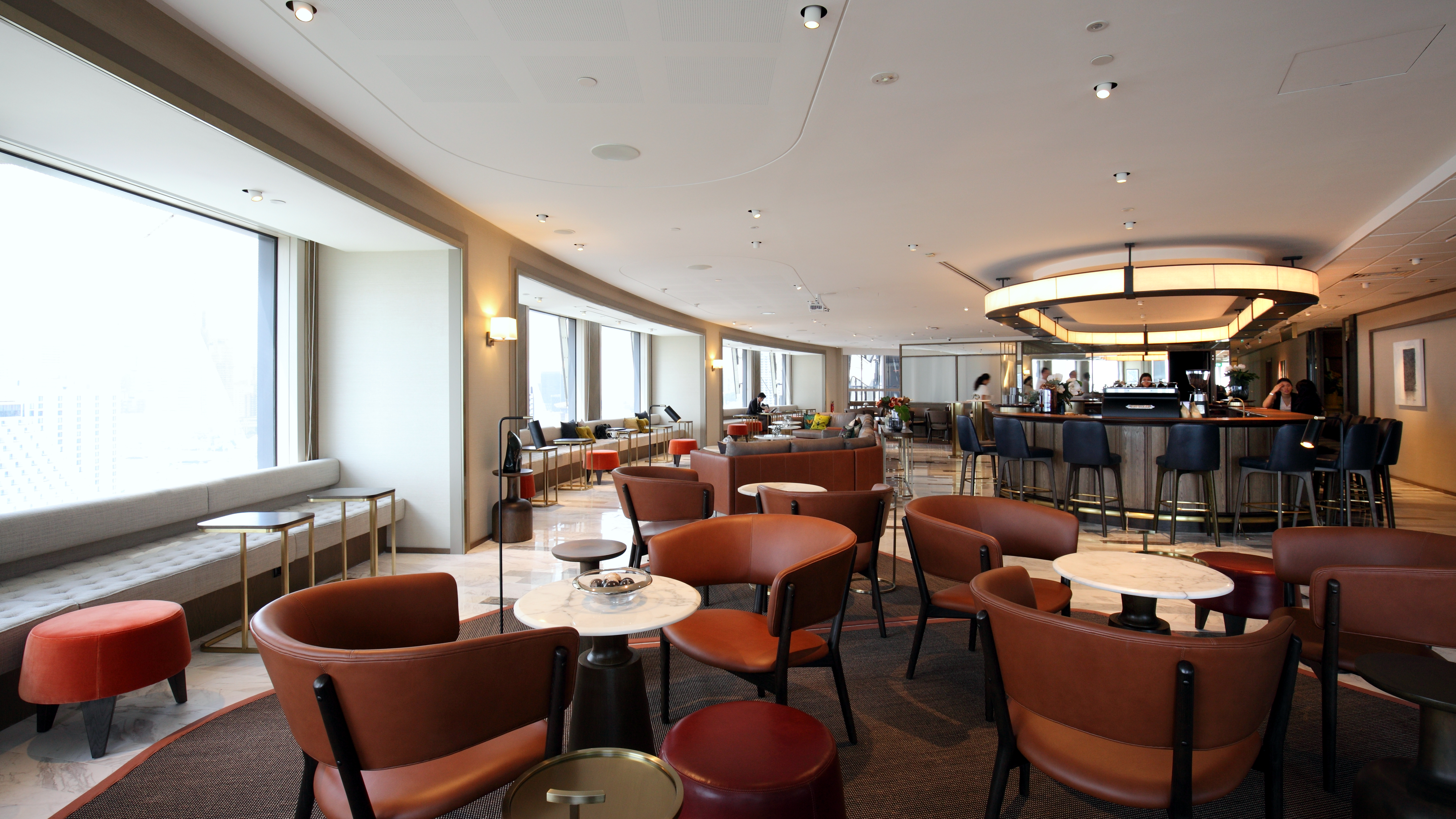Flexible workspace to make up 20% of local office market by 2020
By Lin Zhiqin
/ EdgeProp |

Singapore’s flexible workspace market saw a flurry of activity by co-working operators last year. “It is the most exciting in the region,” says Duncan White, executive director and head of office services at Colliers International.
Flexible workspace, which comprises serviced offices and co-working space, is now a fundamental part of the commercial real estate market and is growing in size and importance to both landlords and occupiers, says Colliers in its Asia Pacific Flexible Workspace Outlook Report 2018. The average leasing term for flexible workspace is at least 24 months now, up from 12 months in 2013. According to Colliers, this demonstrates that flexible workspace is now a competitor to traditional office space.
Source: Colliers International
Colliers says notable deals in 2017 included The Great Room’s expansion to an entire floor at One George Street and also securing two floors at Centennial Tower, bringing its total space in Singapore to 61,000 sq ft. The biggest deal was Distrii’s maiden venture into Singapore, which saw the China operator taking up 62,000 sq ft at Republic Plaza. The building is owned by property group City Developments, which acquired a 24% stake in Distrii in January last year for RMB72 million ($15.06 million). JustCo’s lease of 60,000 sq ft at Marina Square was the next largest deal.
Advertisement

The Great Room secured two floors of space at Centennial Tower, bringing its total offering in Singapore to 61,000 sq ft
Across Asia-Pacific, take-up by flexible workspace operators accounted for 40% of the overall office market in 2017, says Jonathan Wright, head of flexible workspace services at Colliers. The growth is driven by MNCs, as seen from the percentage of deals for at least 15 workstations rising from 32% in 2016 to 48% in 2017, he adds.
In Singapore, the proportion of office space occupied by flexible workspace is projected to rise from 2.4% in 2017 to 3.9% in 2018, and reach 20% by 2020, says White. Colliers also expects sustained demand from operators, with takeup for 2018 estimated at 550,000 sq ft, similar to 2017’s 543,000 sq ft, which represents 19% of the 2.9 million sq ft of office space taken up last year. “New demand for office space came purely from co-working operators last year,” says White. Relocations accounted for the remainder of the space taken up. While landlords are filling their space, however, they are not receiving the highest levels of rent, adds White.
Cal Lee, founder and global head of Workthere, says Singapore has seen the emergence of many new providers in the market, and demand for flexible workspace continues to grow as even larger companies are seeing the benefits of a flexible workspace over a traditional lease.
Workthere is a new venture by London-listed real estate services provider Savills that was launched in the UK in February last year. Billed as a new brokerage service and online listing platform for flexible workspaces, Workthere is now expanding across Europe and was launched in Singapore on March 1.
Combining Workthere’s online search capabilities with a Savills adviser is the key differentiator that sets the service apart from other online platforms such as FlySpaces and GorillaSpace, says Yann Deschamps, head of Workthere Asia Pacific. Workthere also augments Savills’ leasing services and enables it to mine a new market sector, says Christopher Marriott, CEO of Savills Southeast Asia.
Advertisement

Deschamps: Combining Workthere’s online search capabilities with a Savills adviser sets the service apart from its other online platforms
According to a survey of office occupiers by Colliers, 56% of corporations are already using flexible workspace in some capacity and 91% said they are considering using it. The biggest reason for choosing flexible workspace is the benefit of a flexible lease term, according to 44% of the enterprise respondents. Twenty per cent said they were looking to reduce capex, 16% were looking for a creative environment and just 7% said it was to access the innovative start-up community in the co-working space.
Another development that is expected to fuel demand for flexible workspace is the Financial Accounting Standards Board and International Accounting Standard Board’s requirement for businesses to disclose real estate lease obligations and major assets directly on balance sheets by 2019. This will add more than US$2 trillion ($2.65 trillion) worth of debt to company balance sheets, according to Colliers, and should push corporations to take less space on traditional long-term leases and rely on flexible workspace to accommodate fluctuations in headcount. Short-term agreements for flexible space and the use of amenities such as meeting rooms will typically sit outside of the disclosure obligations, says Colliers.
Increasingly, landlords are looking at how to leverage the benefits of having flexible workspace in their buildings, says Colliers. Any space, including retail, can be used for flexible workspace, says Colliers’ White. Having a workspace component, such as JustCo’s upcoming centre at Marina Square, can help increase the footfall, which benefits the other retail tenants.

White: There will be consolidation and we will end up with three large global and regional co-working operators, with smaller and more local operators retaining a relevant position in the market to cater for a more specified or niche offering focusing on alternate communities.
Some landlords are also launching their own flexible workspace brands, with Keppel REIT growing its KLOUD within Harbourfront and Keppel Towers. Through its corporate venture fund, C31 Ventures, and CapitaLand Commercial Trust, CapitaLand is both investor and landlord of The Great Room. The real estate giant has also ventured into the market as operator with the launch of its Flexi-suites brand at 20 Anson Road, notes Colliers.
Advertisement
Australia-headquartered construction, property and infrastructure group Lendlease is said to be considering operating its own flexible workspace brand at its Paya Lebar Quarter development. According to Colliers’ report, Lendlease is “considering a blend of external operator and owner-operator”.
There is a restriction, however, on the growth of flexible space, owing to the exclusivity clauses demanded by operators when they sign leases. “There are a lot of exclusivity clauses preventing operators from entering buildings,” says White. There will be consolidation and “we will end up with three large global and regional co-working operators,” he reckons. “But, within cities, there will be local and niche players with their strong community.”
Edited on March 5, 2018, to include mention of smaller and local firms in White's photo caption; According to The Working Capitol on March 5, 2018, the expansion to Mapletree Business City is no longer part of its plan. Hence, mention of that deal has been removed from paragraph three at The Working Capitol's request.
https://www.edgeprop.sg/property-news/flexible-workspace-make-20-local-office-market-2020


Follow Us
Follow our channels to receive property news updates 24/7 round the clock.
Subscribe to our newsletter
Advertisement
Advertisement
Advertisement
Top Articles
Search Articles